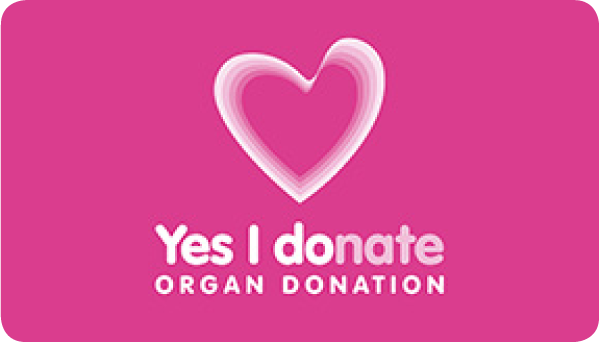Haemodialysis Holiday Advice
Useful guidelines for dialysis patients wanting to take a holiday.
Haemodialysis Patients
- Discuss your intentions early with your doctor and determine whether you are fit to travel. The holiday dialysis unit will expect a letter stating you fitness as will airlines and others involved in your care and travel.
- Tell your local co-ordinator – before you start planning your holiday, let your coordinator for St George’s (link) know. St George’s request 6 weeks notice in order to collect the necessary blood test and information to send on to the holiday unit. Also read their process and follow it carefully for dialysis abroad. It contains important information about risks and requirements.
- Choosing where to go – there are numerous choices available. (See The National Kidney Federation holiday pages for more information and recommendation)
- Within the UK there are many options, both private and NHS. But be aware popular holiday areas will have units that are over subscribed during holiday periods.
- In the EU, Switzerland and Australia, although they have reciprocal public healthcare arrangements with the UK, each country will have its own processes and some have fees.
- In the US, Canada, Japan and New Zealand, you should expect similar standards of hygiene and care to the UK. However you will liable for the full fees.
- In many other countries not mentioned above the facilities, equipment and standards of hygiene and care are likely to be less than the UK.
- Cruises are a popular option, but it is worth noting that you will have to pay the full costs of the treatment.
- Remember if you don’t speak the local language, check in advance whether the nurses speak English.
- Financial considerations & insurance
- The NHS has arrangements within the UK for NHS centres.
- Be aware that, if the site is private you will have to claim back your payments from the NHS. They do however have a maximum fee per session and you will have to pay the difference. This might mean you could pay £500 or more for 6 (2 weeks of) sessions.
- Also if you travel to Europe, you have the possibility of choosing a hospital that accepts EHIC cards. They entitle you to receive free or subsidised treatment from the local health service. But be aware in some hospitals they can charge up to 20% fees that you have to pay. For the countries covered and more details on the scheme and how to get the card, see the www.kidney.org.uk site
- Travelling as a dialysis patient means complications with insurance. You have 2 options. You can either inform your normal travel insurance provider of your situation. In which case they may make certain exclusions to your policy relating to your pre-existing conditions (renal failure and associated conditions). Alternatively you could approach specialist firms details of which can be found here: or call National Kidney Federation www.kidney.org.uk or tel. 0845 601 02 09.
- Planning
- Dialysis centre arrangements – you need to start by making sure your chosen unit has a dialysis slot for the dates you want to travel. It is common to have to change dates to fit in with the unit if you are determined to visit a particular unit as popular units become full well in advance (sometimes a year in advance!). Once you have agreed times, the holiday unit will probably provide you with forms that they expect you to complete, which your St George’s holiday coordinator will help you with. The forms will ask for medical history and your dialysis prescription. They will also ask for virology tests including MRSA, HIV & Hepatitis status about 6-8 weeks before you travel and other blood tests about 4 weeks before you travel. Your holiday coordinator will pull together a package of information (Dr’s letter and test results) that will then be sent to the holiday dialysis unit.
- Flying/transport/accommodation – Once you have fixed your have confirmed dates with your holiday dialysing unit you can go ahead and book the rest of your holiday. You will need to follow the usual procedures with each organisation where you need to inform them in advance of any special requirements for accessibility, diet or the need to carry medications. In particular if you need to carry needles on board you will need a letter from the hospital. Usually the anaemia nurse can arrange one for EPO injections and similar ones for insulin.
- The right dates – Preferably travel soon after dialysing to give yourself the maximum flexibility with travel delays. You will also be travelling with the minimum amount of excess fluid. This is particularly important if you suffer from fluid in the lungs. You also don’t want to be landing in a strange country and having to immediately seek out the location of the holiday dialysis unit.
- Medication
- Make sure you have all your medication for the full duration of your holiday plus any delay that might happen on your return.
- Check if you require vaccinations but also check if they are suitable for your medical situation.
- Ensure you have all the necessary permits/letters to carry those medicines if travelling abroad. Some medications carry additional restrictions or are even banned in some countries. As mentioned above, make sure you have the necessary approvals to carry any needles on aircraft and through airports. Your holiday coordinator can help here.
- A special note about EPO injections. You need to keep the medication below 8oC. A cool bag with freezer block was provided for short journeys (approximately 4-8 hours depending on the outside temperature) with your first prescription. However some budget airlines do not have fridges on board and so you cannot have them store it there to extend the time to your destination fridge. Check in advance what your airlines facilities are. If necessary take additional freezer blocks.
- Keep your medication in your hand luggage. Although this means you will have to declare it through security at airports, it means that you are less likely to find yourself and hand luggage in the Bahamas with you medication and suitcases in Birmingham.
- Just before you travel
- If your holiday coordinator has not already done this, please inform the transplant coordinator if you are on the transplantation waiting list. You will then be removed from the list for the duration of your holiday
- Know what over the counter medications and ointments you can take when on holiday.
- Have emergency contact details and numbers. You may need to call back to the UK for help and information while away.
- It is useful to have a record of some of the information that might not be asked for by the holiday unit but they will need to know. Examples include the heparin volume in those with tesio or permacath lines or the gauge of the fistula needles. Ask your local team for help here.
- Travelling
- Stick to your normal dietary and fluid restrictions! Resist the urge to say you’ll worry about your health when you get back home.
- Follow the normal common sense rules for food and water hygiene.
- Have emergency contact numbers and details on you at all times, but especially while dialysing.
- Dialysis
- Know how you will get to and from the dialysis unit on holiday. Allow yourself plenty of time to find the right location before your first dialysis session. Especially if you don’t speak the local language.
- Dialysing in a new place can be a nervous experience. Don’t be afraid to ask if you are not familiar with what the holiday unit is doing. But do expect things to be different to your local dialysis unit.
- On your return
- You may be put in an isolation room dialysis for some time dependent on where you visited.
- Let the transplantation coordinator know you are back.
- Expect more virology tests to confirm you did not pick up any unwanted infections while away.
- Bring your photos in to make your fellow patients and nurses jealous….




